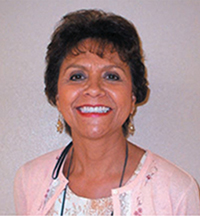 Why did you choose your specific health professional career?
Why did you choose your specific health professional career?
In high school, I attended a three week health careers workshop at Middle Tennessee State University. This program gave me exposure to various health care disciplines. I wasn’t interested in direct patient care so I opted for a degree in Medical Records Administration.
What experiences did you have to make sure this profession was right for you?
During the summer months while in high school I worked in the Cherokee Indian Hospital in Cherokee, North Carolina and the Health Management Office for the tribe. Also, the Medical Records Program I attended at the University of Kansas covered many areas (Utilization Review, Quality Management, Coding, etc.) As a result of this program, I was able to work in various disciplines over the years, which gave me sound working knowledge of many areas of health care management.
Describe any obstacles or barriers to success that you encountered along your health professional career path and how did you overcome them?
The greatest obstacle I faced was “culture shock” when I graduated from Haskell Indian Junior College and started my junior year at the University of Kansas. Having grown up on the reservation and immediately going to Haskell right out of high school, I wasn’t comfortable in a large university setting. I got through the program with assistance from many mentors along the way. One very special lady took me under her wing while I was in the Medical Records Program at the University of Kansas Medical Center in Kansas City, Kansas.
What do you do in your current job?
I’m the Associate Director (acting) over several departments such as: Contract Health Service, 3rd Party Billing, Finance, Engineering, Health Records, Managed Care, Case Management, Materials Management, Acquisitions, and Support Services at the Phoenix Indian Medical Center (PIMC).
What advice do you have for American Indian/Alaska Native students who are interested in health careers?
You will always have a job. People continue to need health care services and whatever career path you choose whether it is direct patient care or administrative work; it’s a great opportunity to serve our people.

